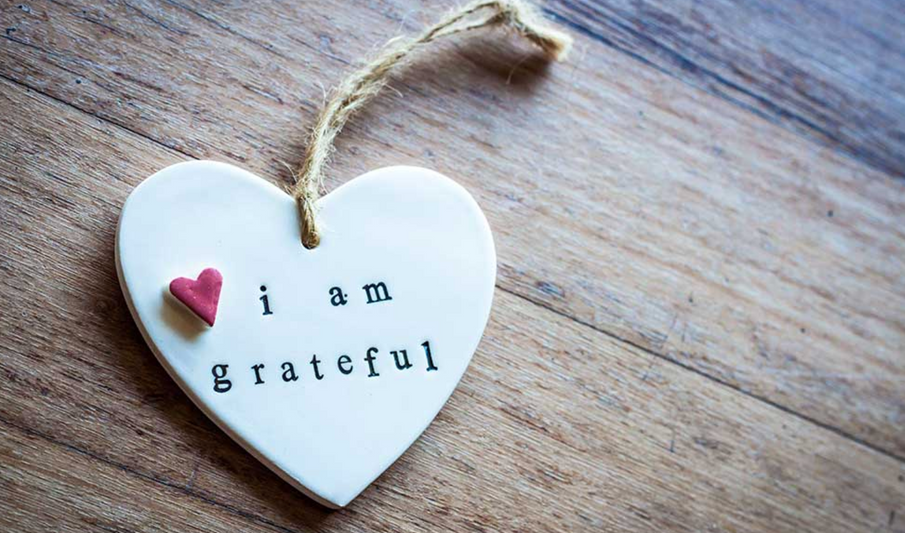Small Acts of Kindness to Trigger Positivity
Written By: Matt Mignona

Let's face it: a lot of what happens during the day is out of our control. We can't control how other people drive, what they say, or how much they ask of us—but we can control what we do, both in response to other people and from our own initiative. If we want more positivity in our lives, we have to choose it, and that doesn't have to be as hard as we imagine.
Living a more positive life starts with small, easy-to-do actions that add up to big happiness when you do them consistently. When you spread kindness to others, the effect is multiplied: it brings happiness to their lives and to yours.
Take it from Alex, a woman featured in one of Oprah's Pay It Forward stories:
"When you do something that's unexpected and brings a smile to somebody's face and you know you helped do that, it's a feeling of joy.... To know that you made a personal connection is huge, and I think we take that for granted."
Everyone in those stories came to a similar conclusion: they did something kind, and it made them feel good. You can do this, too.
It doesn't have to be a big gesture, like starting a foundation or donating hundreds of dollars. Instead, there are countless small acts of kindness you can do on a daily basis to trigger positivity in your own life. Here are a few ideas to get you started:
Say Thank You
It seems like everyone is busy. We all do a lot. And we all have people in our lives who take us for granted. Maybe it's a boss, a spouse, or a friend; there's a good chance that everyone you meet is doing something in their lives that feels unappreciated. You have the opportunity to step in and thank them for something, and that simple "thank you" may mean more to them than you think.
The TED Radio Hour episode "Approaching With Kindness" discusses the importance of gratitude and showing it to those around us. Next time someone serves you a meal, bags your groceries, opens the door, lets you go first, or gives you the last brownie, slow down enough not only to say thank you, but to look at them, smile, and mean it.
Offer to Help
This could be an all-day affair, like helping a friend move to a new apartment, or it could take you no more than a minute or two. Next time you see someone struggling with a little task, like organizing papers, reaching something off the tall shelf, getting up off the floor, picking up a spill, or trying to move an awkwardly sized or shaped item, step in. It'll only take a second, you'll connect with a fellow human, and the task will go much more quickly and pleasantly for that person.
Write a Note
This could be to a loved one or to a stranger. You might mail it or leave it somewhere they can see it. This can be a lot of fun when you realize there are no limits to who could appreciate a friendly note! A few ideas:
- To your spouse, children, or distant family members: I love you and I'm thinking about you, good luck today, or thanks for doing that chore I really didn't want to do.
- To the janitor in your building: Thanks for keeping this place spotless!
- To the person who took your assigned parking space: Hey, I just wanted to let you know this space is reserved. The building manager has cars towed when they're not parked in the right spaces, but I figured you might not know about the parking assignments and would appreciate the heads up! Visitor parking is located by the main building. Thank you!
- To leave on a random windshield: Just a reminder for you—you're doing great in life! Hope you have an awesome day.
Give the Benefit of the Doubt
When someone snaps at you, cuts you off in traffic or takes the last brownie, you can practice kindness by offering them the benefit of the doubt. Maybe his dog died this morning and he's not thinking clearly. Maybe she's in a hurry to get home to her sick child and isn't paying as much attention to traffic as she should. Maybe he hasn't eaten all day!
Now, if the same person is pulling the same offense time and time again, you may need to reconsider your approach and how that person may be pushing your boundaries. However, if it's a one-time interaction with a stranger, giving that person the benefit of the doubt (instead of retaliating by snapping back, tailgating, or hiding the next pan of brownies) is kind to them and freeing for you. It also gives them more space for reflection: if the interaction continues on a negative path, that person may feel justified in his or her behavior. When you respond with kindness, the person has a greater opportunity to reflect on his or her own less-than-kind behavior and, hopefully, make the choice to act differently next time.
How to Plan for Kindness

Several of these action items depend upon what's happening around you, while others allow you to create the situations in which they happen. Strive to put both in your week.
Create two lists: the first is a list of actions you can take no matter what else is happening during the day. This might include the following:
- Checking in on a friend
- Paying for a stranger's lunch
- Donating to a Kickstarter or GoFundMe campaign
- Sending a letter or small gift
- Thanking your spouse for walking the dog or doing the dishes
- Walking the dog or doing the dishes so your spouse doesn't have to
You can schedule those actions into your day, and check them off the list as you accomplish them.
The second list is a list of opportunities you intend to take if they arise. This might include the following:
- Saying thank you whenever someone does something nice for you
- Giving someone else the parking space or letting someone turn into traffic
- Offering to help complete a chore or carry something heavy
- Listening carefully if someone tries to confide in you or tell you a story
- Giving a hurried parent your place in line
At the end of the day, reflect on whether or not you found yourself in any of those situations, and if you acted with kindness. You can approach this without judgment or self-criticism: you might go weeks without meeting a frazzled parent to whom you can offer your place in line. Sometimes, you might meet that frazzled parent but you, too, are frazzled and rushed and aren't able to give up your place. That doesn't mean you're failing at kindness. That simply means you're also being kind to yourself and recognizing your own boundaries. That's a positive practice, too.
You can also use your journal to reflect on acts of kindness other people performed for you and how that made you feel. Strive to remember the moment in detail and relive the warm experience in your mind as you make note of it as one of the happiest moments of your day. That might be an act of kindness you wish to give someone else; it might become one of tomorrow's goals!
Every day, make it your mission to ignite your own happiness by giving it to others. What's the best act of kindness you've given or received? Share it with us in the comments!



Leave A comment